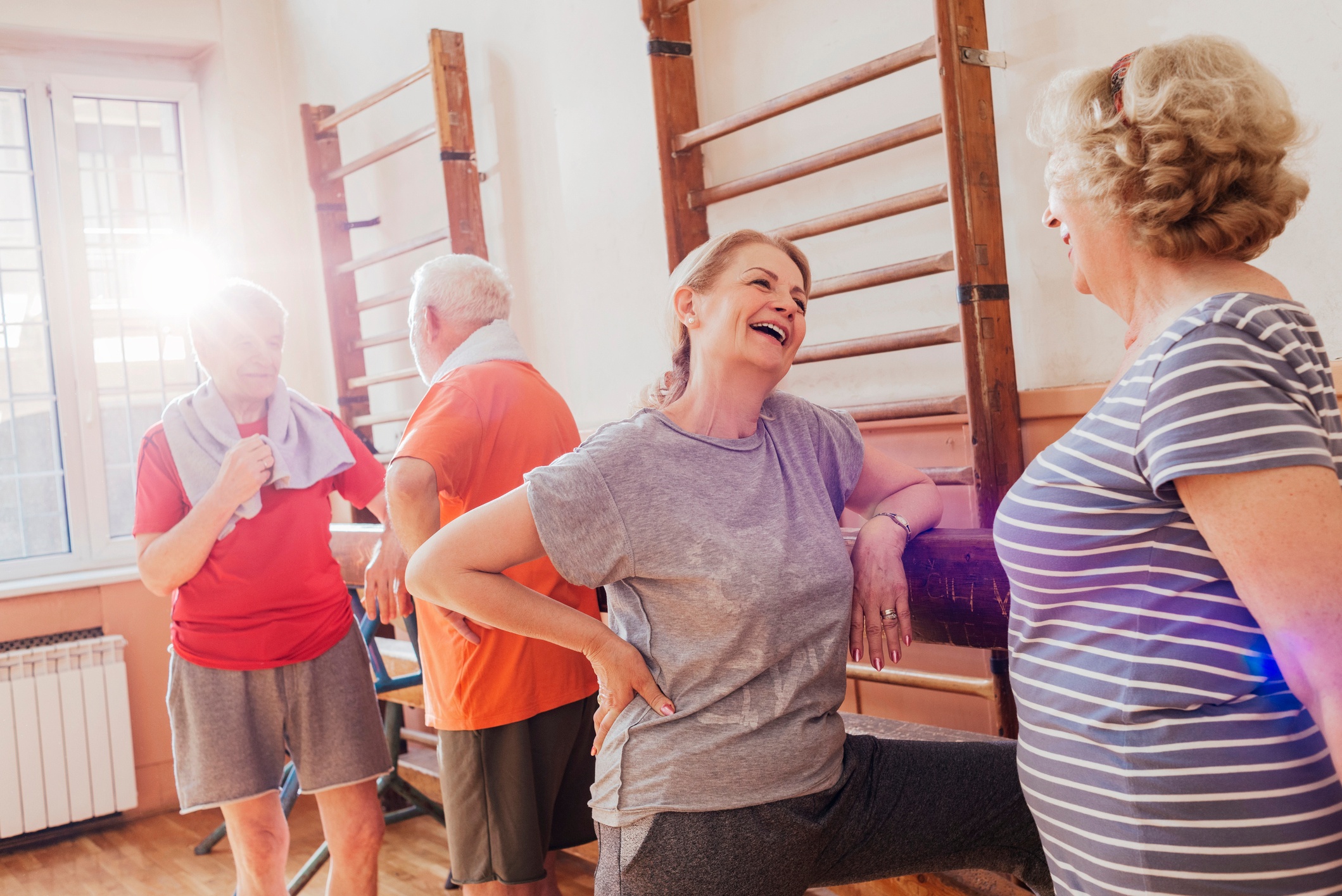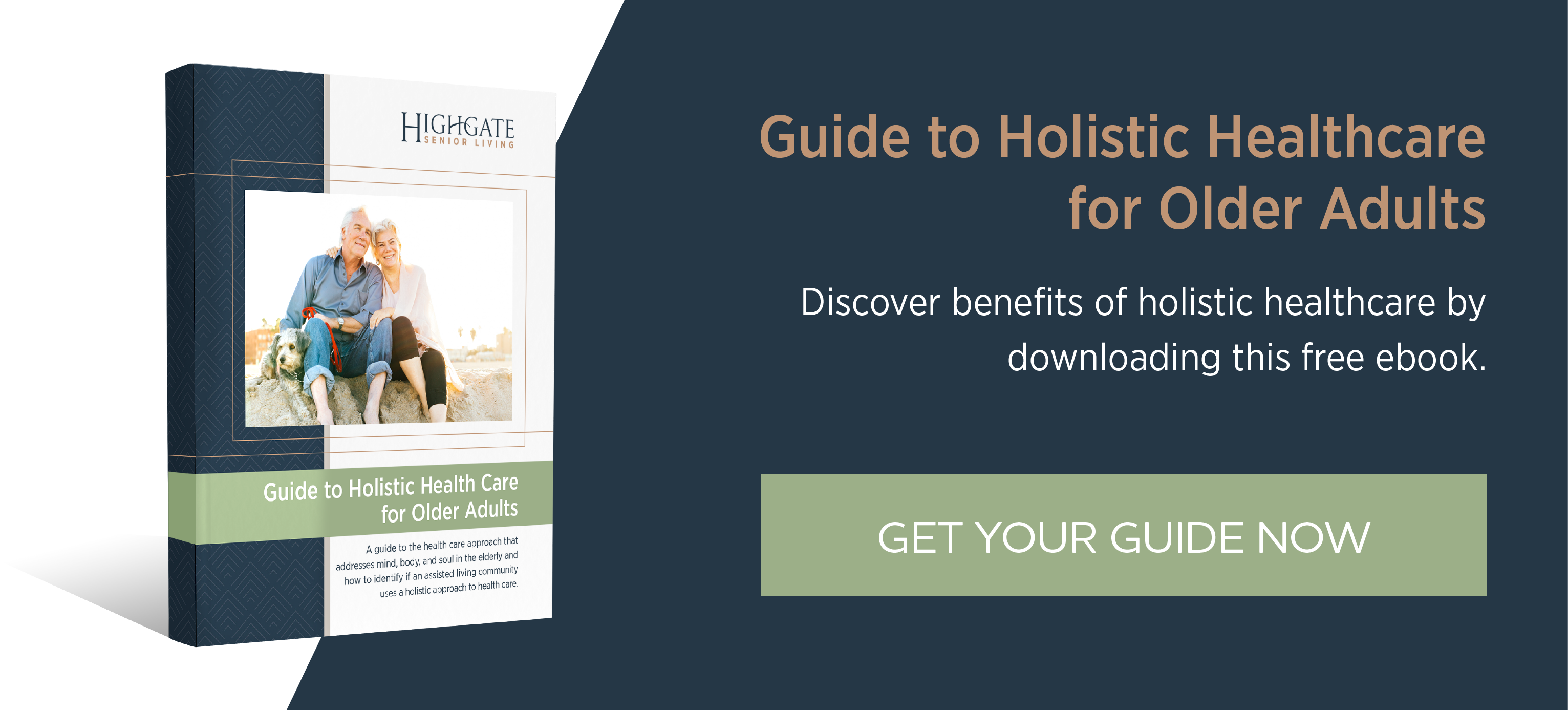
It’s often overlooked. The strong connection between how we feel emotionally, and the affect it can have on our physical health. And vice versa, the effect that physical limitations can have on our emotional well-being.
You may have heard the phrase “holistic health care”. It’s an approach to health and wellness that focuses on treating the whole person- not just a physical illness or ailment. You can treat knee pain with medication, but if the person you are treating battles depression because of the physical limitations they’re experiencing, you’ll be hard-pressed to motivate someone to increase exercise, lose weight, and potentially decrease the chronic knee pain they suffer from.
It’s a growing epidemic. Adults aged 80-84 years on average manage 18 different prescriptions per year. And while a holistic approach to health care might not eliminate the need for medications, it can decrease the need for medication in some cases.
Let’s take a closer look at how the mind and body are connected
How the Mind and Body Affect One Another The understanding that emotions affect physical health dates as far back as the second century. Scientifically, “there is no real division between mind and body because of networks of communication that exist between the brain and neurological, endocrine and immune systems,” says Professor Emeritus of Psychology, Psychiatry, and Pharmacology at Vanderbilt University.
Your thoughts, feelings, beliefs, and attitudes can (positively or negatively) affect how healthy your body is.
Just think about what happens when you get irritated or frustrated. Does your breathing get short and shallow? Do your muscles tighten?
Mental Health in Seniors
Consider how memories affect you. Remembering highlights of your life like a college graduation, the birth of a child, or getting married to your significant other can make you feel warm and relaxed. Similarly, the loss of a parent, a cancer diagnosis, or painful divorce can cause you to feel anxious or depressed.
An estimated 7 million adults over the age of 65 experience depression each year. Those who suffer from depression have an increased risk of cardiovascular disease, diabetes, stroke, and Alzheimer’s disease relative to others, according to the National Institute of Mental Health. Research shows that people with chronic pain have three times the average risk of developing psychiatric symptoms — usually mood or anxiety disorders — and depressed patients have three times the average risk of developing chronic pain.
It is estimated that 20% of people age 55 years or older experience some type of mental health concern. The most common conditions include anxiety, severe cognitive impairment, and mood disorders (such as depression or bipolar disorder). If left unchecked, these concerns can contribute to many physical health problems such as increased risk for hypertension (high blood pressure), heart attack, or stroke.
Physical Health in Seniors
But physical limitations can also cause an adverse effect on emotions. What you eat, how much you exercise, even your posture can impact your mental state. Serious illnesses such as heart disease, stroke, diabetes, cancer, or dementia often cause depression because of the changes in mobility and independence.
Holistic emotional and social well-being for seniors
Studies conducted in the USA have revealed that 67% of American patients in hospitals do not receive holistic care. Holistic care increases the depth of care providers’ understanding of the needs of those they care for.
Educating patients about self-care and helping them to perform their daily activities independently is part of holistic care.
Remember the example used earlier in this article where we discussed using medication to treat chronic knee pain? A holistic approach would entail having the patient take part in the process and would encourage self-care (deliberately taking care of mental, emotional, and physical health). A holistic approach instills hope, respects dignity, and promotes self-discipline.
A holistic approach to health care for older adults also entails therapies and programs that strengthen your mental, physical, and spiritual health. For assisted living communities that offer a holistic approach to health care, you will see programs offered like:
- Meditation
- Aromatherapy
- Massage therapy
- Creative arts therapies, such as art, music, or dance
- Yoga
- Tai chi
- Cognitive-behavior therapy
- Pet therapy
Meeting social, emotional, physical and spiritual needs can become more difficult as you age. Maybe your loved one isn’t able to drive anymore. Or, changes in their physical health have prevented them from enjoying the activities they once did that fed them positively, emotionally and spiritually.
Learn more about how a holistic approach to health care in assisted living can positively benefit your loved one.






